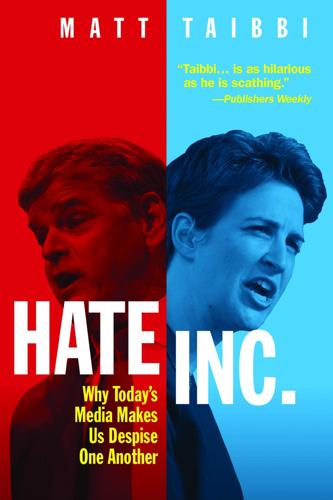
Hate Inc.: Why Today’s Media Makes Us Despise One Another
by
Matt Taibbi
Published 7 Oct 2019
One may be worse than the other, but their mirroring takes on big issues cumulatively create a consistent message. Take, for instance, the Why Do They Hate Us? question, about why the public mistrusts the press. The highest priest of the “Liberal Bias” question is Emmy-winning former CBS producer Bernard Goldberg. Goldberg crafted the modern conservative take on liberal media, beginning with a 1996 editorial in the Wall Street Journal entitled “Networks Need a Reality Check.” Most of the modern tenets of the liberal-bias religion are found in that early editorial, which he elucidated at greater length with a subsequent smash-hit number one bestselling book, Bias. If one could surgically remove its obnoxious thesis, and re-cast it as a lurid tell-all about egomaniacal network TV personalities, Bias would actually be a funny book.
…
But of the forty-four Africa segments on Anderson Cooper 360 during that four-year period, only sixteen did not involve either Angelina Jolie or the plight of gorillas. Forget about lesbians in third-world counties—we don’t cover people in third-world countries period. Goldberg consistently tells his audiences that “liberal bias” is the big uncovered story. It is, he says, “the one topic that had pretty much been out of bounds on network news.” You can’t smoke enough crack to make that sentence seem remotely true. Liberal bias is the “one topic” network news doesn’t cover? There are so many massive stories that the national press ignores on a daily basis. We don’t cover child labor, debt slavery, human rights atrocities (particularly by U.S. client nations), white-collar crime, environmental crises involving nuclear or agricultural waste, military contracting corruption (the Pentagon by now cannot account for over six trillion dollars in spending), corporate tax evasion and dozens of other topics.
…
Anchor Dan was summoned back to work, but in the meantime, someone had to do the news, and that someone happened to be Connie Chung. While 168 bodies were still sizzling, Rather showed up at CBS and was “so incensed that Connie was on air first” that he spent hours calling media buddies and ranting off the record about what a second-rate journalist Chung was. This is all basically Genesis 1:1 of the “liberal bias” religion. Goldberg tells a true story about the upper ranks of network news being full of people who run editorials disguised as news more or less constantly, and are, like Rather, often so far up their own asses that they’ll start screaming their regular-person credentials at you at the slightest hint of criticism.
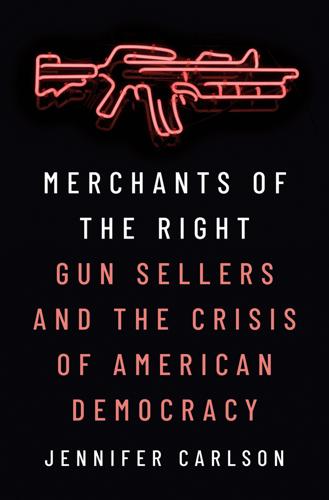
Merchants of the Right: Gun Sellers and the Crisis of American Democracy
by
Jennifer Carlson
Published 2 May 2023
As early as the 1950s, conservative media activists justified the need for alternative channels of political discourse—newspapers, radio shows, publishing houses, and eventually television networks—by decrying the presumed liberal bias they saw in mainstream media and championing a populist stance that elevated the voices of “real Americans.”29 Conservative outlets’ blending of “the liberal bias story and the populist story” (as media scholar Reece Peck30 describes it with respect to Fox News) not only allowed conservative media to adopt an “outsider” status despite its access to economic and political resources;31 it also allowed space for conspiracist thinking to flourish as an explanation for the ascendancy of liberal policies, politics, and politicians. Purged of liberal bias, this network of conservative media created an insular ecosystem of knowledge that fed off of itself: “existing separately from established media enterprises meant conservatives in media turned to one another to expand audiences, spread publicity, and bolster content … to provide evidence for claims, conservatives would cite one another.”32 By the turn of the twenty-first century, these efforts would culminate in Fox News, a “fair and balanced” cable news network that championed conservative ideologies “not by convincing the public that Fox was going to be politically neutral, but rather by hollowing out the very concepts of ‘balance’ and ‘objectivity’ themselves”33 in favor of “truthiness” and “alternative facts” felt to be true, even if they were not, in fact, true at all.34 With the help of media activists and politicians, conspiracist thinking became woven into the fabric of conservative politics, coordinating different swaths of conservatives—from evangelical Christians to gun-toting libertarians—into similar styles of political reasoning.
…
The modern conservative movement could not have cohered without the coordinating work of media activists and national politicians (alongside leading organizations like the NRA). As early as the 1950s, media activists provided the foundation for conservative activism and organization by developing a network of conservative talk radio, right-leaning newspapers and publishing houses, and, much later, conservative cable networks (Hemmer 2016). Circumventing the presumed liberal bias of mainstream media and promoting messages of free market capitalism, social traditionalism, and white supremacy, these media outlets proclaimed “the rise of liberalism as a great betrayal of the American creed” (Hemmer 2016: 179) and beckoned their conservative audience as the “authentic moral core” (Peck 2019: 86) of American society.
…
Indeed, while liberals may have applauded the efforts of experts to “March for Science” in 2017 amid the threat that Trump posed to scientific consensus, many conservatives found the same show of support as reason to doubt the intentions of scientists—and consider them untrustworthy. See Motta (2018). 45. White (2018: 31). 46. White (2018), studying the portrayal of the Tea Party in news media, shows that conservative news media have proactively worked to associate mainstream media with liberal bias. Tea Party coverage by conservative media included “descriptors [that] connote a widespread belief that all media outlets and workers have inherent ideological biases that affect their content,” for example, “Liberal Media and the NAACP condemn Tea Party as racist; Left-Wingers in the media and Democrats; Media and elite universities; Media and our domestic enemies” (White 2018: 162). 47.

Global Spin: The Corporate Assault on Environmentalism
by
Sharon Beder
Published 1 Jan 1997
In the biological realm, things of that nature are called parasites.118 Advertising—on television, in newspapers and magazines, on billboards and in school education—is now so pervasive, its message of consumerism so overwhelming, that alternative voices and messages don’t get heard: “Commercial speech is so powerful that it drowns out all other sounds.”119 Chapter 12 The Media: Corporate Influences Corporate executives and conservative leaders attributed the surge of regulation and the distrust of business of the late 1960s and early 1970s in part to the media and what they perceived as its liberal bias. As part of the political resurgence of conservative ideas, they sought to build their own reliable media outlets and to have more influence over existing media organizations. Robert Parry, author of Fooling America, a book about the Reagan/Bush era, describes a well-financed plan to build a conservative press, conceived by Richard Nixon: In the twenty-five years since Nixon started ‘pushing’ this project, the conservatives have constructed a truly intimidating media machine.
…
Beth Schulman, associate publisher of In These Times, documents the $2.7 million in grants going to the conservative magazines The American Spectator, The National Interest, The Public Interest and The New Criterion, whilst the top progressive magazines The Nation, Mother Jones, The Progressive and In These Times received a total of $269,500 in grants over the same period.3 Conservative columnists were encouraged and nurtured, while progressive journalists and their editors were pestered and subjected to complaints. Various conservative media-watch organizations were set up for this purpose, such as Accuracy in Media (AIM), founded to “expose liberal bias in the media”, and the Media Institute, which included executives from major corporations such as Procter & Gamble and Mobil Oil on its national advisory board.4 Perhaps the most significant development, however, was the rise of the conservative talk show. Since the early 1980s the number of talk radio stations in the US has quadrupled to over 800.
…
The study concluded that “Nightline serves as an electronic soapbox from which white, male, élite representatives of the status quo can present their case.”16 (Nightline also influences who is used as a source by other journalists.17) FAIR’s study of the Public Broadcasting Service (PBS), often criticized by conservatives for its liberal bias, also found that the majority of programming on PBS stations used conservative sources (mainly corporate) and government spokespersons, and rarely used activists such as environmentalists.18 The leading talkshows on public TV are either hosted by conservatives. . . or feature inside-the-Beltway centrists. . .
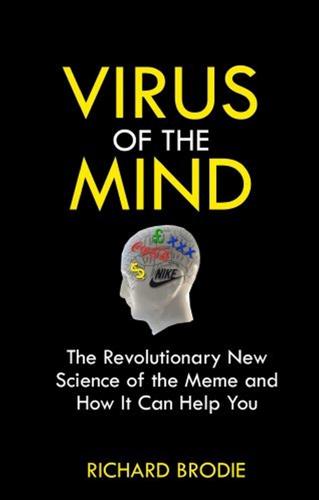
Virus of the Mind
by
Richard Brodie
Published 4 Jun 2009
One of the few voices for the status quo during the Reagan years was the show Crossfire on the Cable News Network (CNN). Brilliantly conceived, it set up a conflict between voices from the left and the right to press our danger and crisis buttons. With those memes penetrating our defenses, we heard both the liberal and conservative viewpoints. The so-called liberal bias was not a “liberal” bias at all—it was a bias against speaking out in favor of the status quo, for a reason no more sinister than this: Being in favor of the status quo is boring! It doesn’t push any Buttons. The news media have evolved into a self-perpetuating cultural virus speaking out in favor of change.
…
Because nobody would go out and buy a newspaper that said, day after day, “Things are fine. Nothing to worry about.” The Things are fine meme is a very weak one, not pressing any of our major buttons. We would ignore it; the paper would go out of business; the reporter would starve to death. That would be news! Rumblings of a “liberal bias” in the news media during the Reagan and Bush, Sr., presidencies quickly turned to grumblings about “conservative hatemongering” when the more liberal Clinton was elected. Which one is true? Neither. In reality, the bias in the media isn’t liberal or conservative—it is toward stories that push our buttons, meaning that we buy their papers, listen to their shows, and keep them in business.
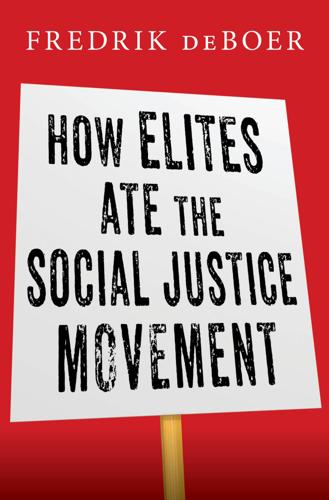
How Elites Ate the Social Justice Movement
by
Fredrik Deboer
Published 4 Sep 2023
It’s long been observed that members of the mainstream media (that is to say, neither explicitly right- or left-wing) are dominantly left-leaning and Democratic. The degree of this dominance, and the extent to which it influences coverage, are fiercely controversial. Endless books have been written to hash out the degree of a “liberal bias” in media. Broadly speaking, I do believe there’s a liberal bias in media—and also a corporatist bias, a nationalist bias, an establishment bias. But in the summer of 2020, the conversation within media about its biases evolved. Galvanized by the post-Floyd atmosphere, many reporters and pundits seemed to shed any pretense to neutrality and began discussing their work straightforwardly as a kind of activism.
…
Collective, 111 income inequality, 148–151, 188–189 “In Defense of Destroying Property” (Nation), In Defense of Looting (Osterweil), 83 “Insanely Overpaid Nonprofit Execs” (Fiscal Times), 108 internal locus of control, 139–140 internet, 130, 204 intersectionality, 165, 166, 192 Iran, 92 Iraq war, 3 “iron law of institutions,” 104–105 “iron law of oligarchy,” 104 Jackson, Regina, 71–72 Jacobin magazine, 26, 187 January 6 Capitol riot, 41 Jefferson, Margo, 65 Johnson, Lyndon, 208 Kaba, Mariame, 38, 53 Kelly, R., 120, 128 Kerry, John, 25, 214 King, Martin Luther, Jr. assassination of, 34 on limited change, 70 and Malcolm X, 84–87, 93 and March on Washington, 182 on riots and rioting, 80–81, 84–85 tactics of, 90 Klein, Paul, 114 labor market, 18 labor movement, 9, 78, 170, 180, 194–196 labor unions, 180, 194–196 language identity politics’ fixation on, 173 left’s academic vocabulary, 200–202 nonsensical, 204–207 progressive politics games in, 155–156 in race politics, 67–70, 75 of the unheard, riots as, 81, 84–85 leadership structures, 21–24, 113–114 leaders of social movements, 9 the left academic vocabulary of, 200–202 boundaries of, 25 case against nonprofits in, 107–118 demands of, 79 disdain for white working class in, 10 and education polarization, 144–151 elitism associated with, 145 focus of, 203 galvanized by Floyd’s murder, 6 and labor movement, 9 lack of uniting vision in, 185–187 need to regain standing among other majorities by, 162 power of, 10 stereotypes of, 145 left activism, 9–11 balancing structure and chaos in, 116–117 common problems in, 23 cultural issues in, 10 disdain for white working class in, 10 horizontal decision-making in, 21–24 idea of armed resistance in, 90 identity niches in, 175–176 infighting and squabbling over priorities in, 20 lack of coherent demands in, 19–21 nonprofits’ role in, 111–112 “progressive stack” in, 156–157 recruiting for, 9–10 left-of-center left, 29–30 dedication to division, 198 and identity politics, 184–185 infighting over oppression hierarchies, 177 lack of coherence in, 149 setting conversations of, 150 tendency to denounce people in, 154 see also liberals left-of-liberal left, 25, 26 left politics atmosphere of 2020 in, 35 class politics in, 175 class reductionist, 168–174 current state of, 78–79 drift from material/concrete to immaterial/symbolic in, 8–9 endorsement of violence in, 80 foundation of, 187–188 and locus of control, 143 people who speak in, 8–9 reorienting (see class-first leftism) Levitz, Eric, 147 liberalism attachment to discipline and self-improvement in, 138–139 desire to please in, 153 nonprofits as vehicles for, 107 racial framing in, 181–182 liberals, 134–163 analyses of, 134–135 changing the orientation of, 162–163 contemporary, 137–143 Democrats identifying as, 136, 137 and education polarization, 144–151 fixation on race among, 74, 75 hypocrisy and cowardice of, 152–155, 159 and locus of control, 139–143 and politics of deference, 155–163 in racial discourse, 62–63 self-accusation by, 154–155 technocratic, 25 libertarians, 134 life span, 47 Llorente, Renzo, 175 locus of control, 139–143 “Love Me, I’m a Liberal” (Ochs), 152–153 Lowery, Wesley, 36 mainstream conservative movement, 10 Malcolm X, 84–87, 93 marginalized groups academic work concerning, 74 “centering” of, 176 efforts to reward, 7 further divisions within, 198 politics of deference toward, 155–163 represented in race politics, 8–9 Martin, Trayvon, 37, 46, 49 Marx, Karl, 153, 176, 188, 215 Marxism class politics in, 175 class reductionists in, 170 external locus of control in, 141 and partisan politics, 208 preeminence of self-interest in, 176, 180 and revolution, 193 Masterson, Danny, 128 material security/abundance, 147–148 Maxwell, Ghislaine, 40 Maxwell, Zerlina, 167 McAlevey, Jane, 195 McAvoy, Paula, 146 McCarthy, Eugene, 152 media activist rhetoric in, 35, 36 Black employees in, 66 Depp/Heard case in, 120 elite, 144 income of workers in, 149 insiderism and patronage in, 161 language codes for, 67 liberal bias in, 35–36 liberals’ deference to wisdom of, 135 “moral clarity” argument in, 37 and news cycle as power source, 126 race and racism discussion in, 65–66 and race of actors in shows, 68 racial disparity of workers in, 151 right-wing, 184 self-critical dominant groups in, 157–158 Trump’s attention from, 30 during 2016 Democratic primaries, 166–167 Medicare for All, 40, 178, 213–215 memes, 121, 126–128, 133 meritocratic system, 26, 135, 142–151 #MeToo movement, 14, 32, 119–133 and consequences for accused men, 124–126 current state of, 133 fading impact of, 120–121, 126–128, 130–131 inconsistency in, 123–126, 130 lack of specific policy goal in, 130–132 as a meme, 121, 126–128 news cycle as power source for, 126 potential misuse of, 129 rise of, 119 structural problem with, 123–124 target of, 119 Time’s Up arm of, 122–123 in 2020, 40 as version of canceling, 132 Michels, Robert, 104 millennials, 18 Minneapolis police department, 6, 7, 14, 39 moderates, Democrats as, 136 “moral clarity” argument, 36–37 moral imagination, 187 Movement for Black Lives, 64 “Myth of Class Reductionism, The” (Reed), 169–170 Nation, The, 83, 182 National Association of Nonprofit Organizations & Executives, 103–104 National Association of Scholars, 144 National Council of Nonprofits, 98–100 National Geographic, 84 National Lawyers Guild, 112 Nation of Islam (NOI), 86 Negroland (Jefferson), 65 neoliberal politics, 25 Netflix, 7 New Inquiry, 26 New Republic, 25 “New Sense of Direction, A” (King), 85 New York magazine, 71, 72, 84 New York Times on boundaries of the left, 25 Cotton op-ed in, 56 on election of 2020, 40 Kaba opinion piece in, 38, 53 Lowery opinion piece in, 36 on Occupy movement, 19, 20 Time’s Up ad in, 122 Nietzsche, Friedrich, 159 Nixon, Richard, 34 non-hierarchical decision-making, 19, 21–24 nonprofits, 96–118 activist brain drain due to, 116 concept of “deserving” groups in, 111 criticisms of, 96, 99–106 donors as ultimate stakeholders in, 109–110 general case against, 99–106 ideological makeup of, 107 influence of, 98–99 informal organizing vs., 112–113 institutionalization of, 129 internal elites in, 105 left case against, 107–118 in left organizing, 111–112 local activism organized by, 97 organization and formal legal recognition of, 113–114 political energy blunted by, 79 power in, 104–106 progressive “bias” of, 107–108 public-sector burdens taken on by, 110–111 public support for, 99 and racial justice movement, 6–7 radical activists working for, 115–116 regulatory constraints on, 97 revenue generation by, 108–109 the right’s critiques of, 107 sense of absolution provided by, 117 size of sector, 97–98 social problems perpetuated by, 105–106 spending by, 101–104, 109 staffing vs. structure of, 114 tax issues with, 97, 109–110 nonsense, 204–207 nonviolent protest, 35 North American Free Trade Agreement (NAFTA), 28 No Shortcuts (McAlevey), 195 Novicoff, Marc, 181 Obama, Barack, 10, 15–18, 26–28, 41–42, 72 Occupy Wall Street, 18–26 ancillary protests inspired by, 19 class focus in, 171–172 fizzling out of, 24–25 framing in, 188 influence of, 25–26 intensely non-hierarchical decision-making in, 21–24 lack of coherent demands from, 19–21, 172 lack of concrete consequences of, 19 Ochs, Phil, 152–153 organization along class lines, 194–197 formal, of nonprofits, 113–114 informal, limits of, 112–113 intelligent, 117 lack of, in 2020, 42–43 Osterweil, Vicky, 83 Paradise Suite, The (Brooks), 142 Pelosi, Nancy, 52 Perez, Tom, 41 personal relationships, 22–23 Piketty, Thomas, 144–145 police and policing crime reduction with, 59 defunding, 38, 51–54, 58, 62–63 racial bias in, 57–58 reforming, 58–59 police violence, 47, 199–200 against Black people, 47–49, 55–57, 199–200 George Floyd Justice in Policing Act, 38–39 “moral clarity” about, 36–37 at protests, 81 qualified immunity for, 50, 54 Scott’s policing reform bill, 39 against whites vs.
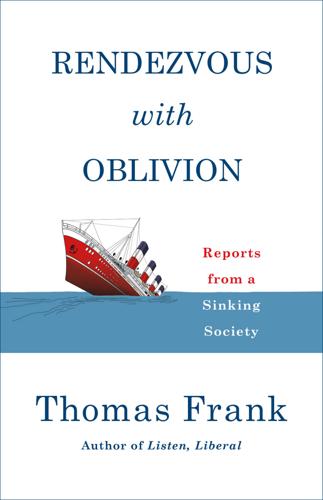
Rendezvous With Oblivion: Reports From a Sinking Society
by
Thomas Frank
Published 18 Jun 2018
In fact, to try to understand American life without recognizing the significance of business is to deny its essence, its motive force. It is to talk about cars without mentioning motors, or gasoline, or roads. Understanding this is a step that Breitbart, like most of his friends on the right, was never able to take. He talked constantly, in his ultra-cynical way, of a “Democrat-Media Complex”—a sort of pumped-up liberal-bias Leviathan—but as far as I can tell, he never took his cynicism beyond that. It didn’t dawn on him that Hollywood’s vaunted liberalism might be just for show, an expression of some deeper (and yet shallower) industry need, no more meaningful than, say, its desire to see the little people of the world using hemp bags to cart their stuff home from Whole Foods.
…
* * * Why should anyone care today that certain pundits were unkind to Bernie Sanders? The election is long over. His campaign is, as we like to say, history. Still, I think that what befell the Vermont senator at the hands of the Post should be of interest to all of us. For starters, it represents a challenge to the standard theory of liberal bias. Sanders was, obviously, well to the left of Hillary Clinton, and yet that did not protect him from the ferocious scorn of the Post, a paper that media-hating conservatives regard as a sort of liberal death squad. Nor was Sanders undone by some seedy journalistic obsession with scandal or pseudoscandal.
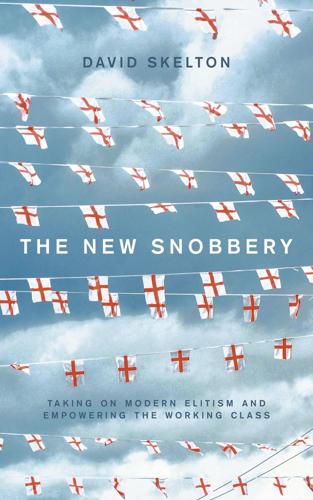
The New Snobbery
by
David Skelton
Published 28 Jun 2021
Roger Mosey, former head of BBC News, has warned that there is an internal battle at the BBC between older journalists, who are strictly committed to impartiality, and younger ones, who want it to become ‘more of a campaigning organisation in which journalists shape the agenda to harmonise with their personal views’.19 The lack of representation of many working-class areas in newsrooms meant that the Brexit vote of 2016 wasn’t properly anticipated prior to the result. Brexit and the collapse of the Red Wall were under-indexed by people who often only heard the views of the London middle class, whereas demand for a second referendum was heavily over-indexed. Former Today presenter John Humphrys has argued that this was down to an ‘institutional liberal bias’ that failed to see the level of concern about issues like Europe.20 This almost certainly meant that, as well as missing out on the Brexit groundswell in the first place, the BBC didn’t note the level of anger at the perception that the vote of working-class people was being ignored. As Mosey commented, BBC journalists shouldn’t be expected to agree with Brexit or with Boris-voters from working-class backgrounds, but they ‘do need to understand the astonishing range of views in modern Britain and to respect the right to hold them.
…
Social class, taste and inequalities in the creative industries’, Arts and Humanities Research Council, 2018. 15 Matthew Moore, ‘Metropolitan mindset is alienating BBC viewers, says Tim Davie’, The Times, 17 September 2020. 16 Today, BBC Radio 4, 4 April 2017. 17 ‘The Oxbridge white bloke’s day is over at the BBC, says comedy controller’, The Independent, 19 June 2018. 18 Anita Singh, ‘BBC cancels The Mash Report, show criticised for “left-wing bias”’, Daily Telegraph, 12 March 2021. 19 Roger Mosey, ‘Bowing to Twitter culture is bad news for the BBC’, The Times, 19 July 2020. 20 Mark Townsend, ‘John Humphrys attacks BBC’s “liberal bias” days after retiring’, The Guardian, 21 September 2019. 21 Mosey, ‘Bowing to Twitter’. 22 Jim Waterson, ‘Jon Snow cleared by Ofcom over “white people” comment’, The Guardian, 5 August 2019. 23 ‘Waitrose is on the march against Brexit – but what of Lidl Britain’, The Guardian, 22 October 2018. 24 Rod Muir, ‘Jon Snow can’t remember if he chanted “f*ck the Tories” at Glastonbury’, Total Politics, 27 June 2017; ‘Channel 4 News boss says media have right to call politicians “liars”’, BBC News, 22 August 2019; Jamie Doward, ‘“Back off”, controversial professor urges critics of Channel 4’s Cathy Newman’, The Guardian, 21 January 2018. 25 Daily Telegraph, 14 June 2008. 26 ‘Panic!’
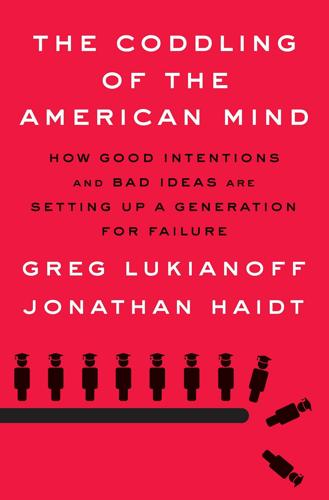
The Coddling of the American Mind: How Good Intentions and Bad Ideas Are Setting Up a Generation for Failure
by
Greg Lukianoff
and
Jonathan Haidt
Published 14 Jun 2018
Retrieved from https://www.chronicle.com/article/Intimidation-Is-the-New-Normal/239890 45. Flaherty, C. (2016, November 22). Being watched. Inside Higher Ed. Retrieved from highered.com/news/2016/11/22/new-website-seeks-register-professors-accused-liberal-bias-and-anti-american-values">https://www.insidehighered.com/news/2016/11/22/new-website-seeks-register-professors-accused-liberal-bias-and-anti-american-values">highered.com/news/2016/11/22/new-website-seeks-register-professors-accused-liberal-bias-and-anti-american-values 46. Heterodox Academy condemned the Professor Watchlist. See: HxA Executive Team. (2016, November 24). Heterodox Academy condemns Professor Watchlist.
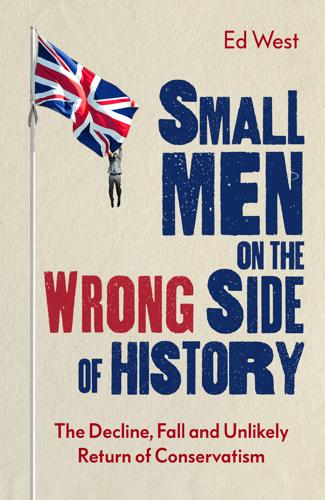
Small Men on the Wrong Side of History: The Decline, Fall and Unlikely Return of Conservatism
by
Ed West
Published 19 Mar 2020
That began to change pretty rapidly, and to many it was disconcerting; by the late 1980s there was quite active opposition by social conservatives who believed that Hollywood was attacking their values. And, inevitably, many of those campaigning against the film industry sounded insane, with talk of ‘the gay agenda’. This liberal bias speeded up in the 1990s, even in films that weren’t overtly political. While American Beauty featured the psycho military-obsessed conservative dad who hates gays and turns out to be one, Titanic was full of fin-de-millennium prejudice about the ruling class of the Belle Époque era, selfish and snobbish and cowardly, when in reality far more first-class men died, proportionally, than third-class women (although first-class women did the best).6 There are some conservative films, namely Falling Down, which chronicled the frustrations of the white middle class in the 1990s, the protagonist living in a squalid city full of Hispanic gangs and polyglot people from whom he feels alienated.
…
Three-quarters of university departments in the US ‘have either zero Republicans, or so few as to make no difference’.7 Even military college West Point has a Democrat: Republican ratio of 1.3 to 1 and Annapolis a ratio of 2.3 to 1.8 Of course, universities lean Left because people high on openness are more creative and intellectually curious, and so have a natural predisposition towards both progressive politics and intellectually stimulating careers. But that cannot explain such a rapid shift, and neither can the claim that ‘reality has a liberal bias’, which even if true would show a much greater imbalance in areas where conservative politicians are more scientifically illiterate, such as chemistry. More likely is that universities have undergone a purity cycle, becoming so politically one-sided that non-progressive thinkers are leaving and new ones are not joining (or not being hired).
…
A real-life NPC is ‘a vessel for received opinion’, trotting out all the conventional beliefs the prevailing liberal culture has told them to believe, ‘echoes of the dumb slogans one incessantly hears on MSNBC or VICE or the latest Netflix special’.13 One version of this meme portrays a character called Wojack who is grey and robot-like and uses phrases like ‘Did you catch the big game?’, ‘The future is female’, ‘Reality has a liberal bias’ and ‘I am excited for Disney-Marvel tentpole production #2881.’ He looks void and empty, reflecting the empty slogans we’re supposed to believe, but also perhaps the emptiness of life in an atomised society. Memes, most often created and spread by alienated young men, are perhaps the first art form in two hundred years in which the Right has excelled.
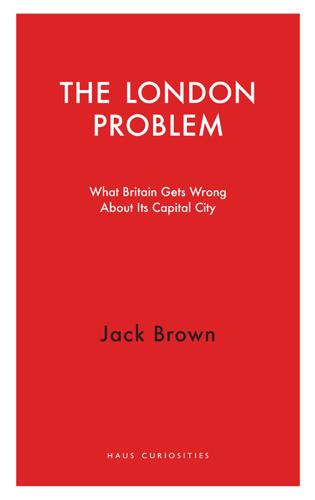
The London Problem: What Britain Gets Wrong About Its Capital City
by
Jack Brown
Published 14 Jul 2021
London-based national cultural institutions dominate the national conversation by virtue of being national, rather than being London-based. When a national organisation such as the Premier League or the National Trust takes a ‘liberal’ stance on an issue, as seen recently during the Black Lives Matter movement, it is accused of metropolitan, liberal bias. But it is also possible that these decisions are the result of senior people thinking long and hard and coming to their own conclusions – not simply because they breathe ‘London air’. Indeed, breathing such air did not stop supporters of Millwall FC booing their own players when they ‘took a knee’ in support of racial equality before a game in December 2020.26 As for the National Trust, its headquarters are in Swindon, and yet its decision to review the links between its properties and slavery has led Conservative MP John Hayes to accuse it of being run by an ‘out of touch, bourgeois elite’ which ‘bears no relationship to the sentiments of its members’.27 This may not be an attack on the capital as such, but it certainly rhymes with one.
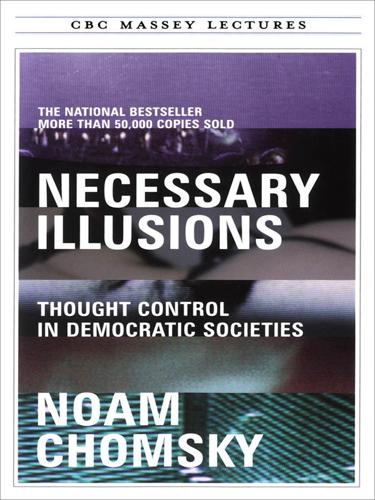
Necessary Illusions
by
Noam Chomsky
Published 1 Sep 1995
Either conclusion is quite acceptable to established power and privilege—even to the media elites themselves, who are not averse to the charge that they may have gone too far in pursuing their cantankerous and obstreperous ways in defiance of orthodoxy and power. The spectrum of discussion reflects what a propaganda model would predict: condemnation of “liberal bias” and defense against this charge, but no recognition of the possibility that “liberal bias” might simply be an expression of one variant of the narrow state-corporate ideology—as, demonstrably, it is—and a particularly useful variant, bearing the implicit message: thus far, and no further. Returning to the proposals of the Brazilian bishops, one reason they would appear superfluous or wrong-headed if raised in our political context is that the media are assumed to be dedicated to service to the public good, if not too extreme in their independence of authority.
…
Former Time senior editor Timothy Foote, who asserts that “any attentive reader” of that journal will know that its bias is sometimes “as obvious as the faces of Mount Rushmore” (Review of William Rusher, The Coming Battle for the Media, WP Weekly, June 27, 1988). Rusher condemns the “media elite” for distorting the news with their liberal bias. Press critic David Shaw of the Los Angeles Times, reviewing the same book in the New York Times Book Review, responds with the equally conventional view that “journalists love to challenge the status quo,” and are “critics, nitpickers, malcontents” who “complain about everything.” 30. For detailed analysis of media coverage of Cuba, see Tony Platt, ed., Tropical Gulag (Global Options, 1987).
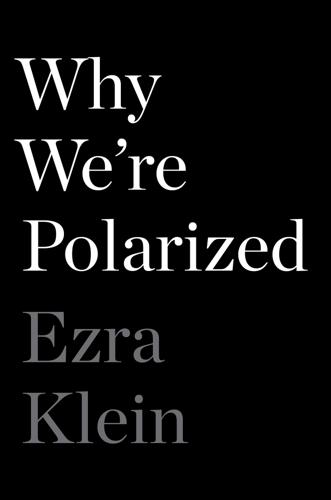
Why We're Polarized
by
Ezra Klein
Published 28 Jan 2020
One universe is an entire lie. Everything run, dominated, and controlled by the left here and around the world is a lie. The other universe is where we are, and that’s where reality reigns supreme and we deal with it. And seldom do these two universes ever overlap.12 The conservative movement has spent years battling liberal bias in the media and the academia. Some of their complaints had merit. But rather than reform those institutions or build similarly credible competitors, the right has untethered itself from them and built an informational ecosystem premised on purity rather than process. In their essay “How Information Became Ideological,” Grossmann and Hopkins describe the result: Only the Republican Party has actively opposed society’s central information-gathering-and-disseminating institutions—universities and the news media—while Democrats have remained reliant on those institutions to justify policy choices and engage in political debate, considering them both independent arbiters and allies.
…
O., Jr., 22 King, Martin Luther, Jr., 133, 267 King, Steve, 149 Klara, Samara, 11–12 Klein, Ezra: California identity of, 211–12 credentials of, xv–xvi, xviii, 139 journalistic mission of, 147, 250 multiple identities and preferences of, 67–68 thesis of, xvi–xvii, xxiii Kolko, Jed, 104 Kremp, Pierre-Antoine, xivn Krupnikov, Yanna, 11–12 Landrieu, Mitch, 25 “landslide counties,” 39 Latinos, see Hispanics Lavine, Howard, 43, 48, 62–63 Leahy, Patrick, 200 Lee, Frances, 214–18, 222 left-wing populism, 122 Lehman Brothers, 252 Levinson, Sanford, 98 Levitsky, Steven, 38, 178 LGBT acceptance, 159 liberals, liberalism: Democratic Party’s embrace of, 1–17 identification statistics for, 231 media information sources of, 234–35 psychological dimension of, 43–44 white, 130–31 Libertarian Party, 3 Liberty University, 246 Limbaugh, Rush, 113, 115, 132, 158, 237 Lincoln, Abraham, 28 Linz, Juan, 200–203, 208, 222 Lippmann, Walter, 146 Lloyd, Mark, 244 local political identity, 266 local politics, interests of, 208–14 loneliness, 57–59 Long, Huey, 178 Lowi, Theodore, 218 Lubell, Samuel, 214 lynchings, 268 McCain, John, x, xii, xvi, 84, 182, 188, 191 McCain-Feingold Act (2002), 184 McCarthy, Joseph, 34 McConnell, Mitch, 177 in Garland nomination, 199–200, 203–4, 207, 260 McDonough, John, 83 McEnery, John, 25 McGovern, George, 38, 192, 195 McKinnon, Mark, 172–73 Maddow, Rachel, 140, 159 Madison, James, 11, 209 magazines, 140–41, 147 “majority-minority America,” 132 Malcolm, X, 267 Manatos, Mike, 221 “Man Bites Blue Dog” (Utych), 193 manipulation: mindfulness vs., 263–64 polarization vs., 261 Mann, Thomas, 225–27 “Man Who Knew Too Little, The,” 264–65 March on Washington for Jobs and Freedom, 133 marginalized groups, identity politics in, xx–xxi margins, popular vote vs. electoral college, x, xiii marriage, cross-party, 75 Mason, Lilliana, 36–37, 68–69, 73–74, 259 Mazzone, Jason, 199 media, xviii–xix, 263 anger fueled by, 159, 167–68 audiences for, 139–41, 143–58 as both reflective and creative, 164–70 as business, 155 conservative rhetoric in, 113–15 content preferences in, 143–44 economic influence on, 144 as identity-based, 169–70 information ecosystems in, 236, 238 liberal bias in, 237–38 market demand in, 150–51 nationalization of, 211–12, 265–66 partisan divide in, 77, 139–70, 227, 234–39 persuasion vs. reinforcement in, 160–61 polarization reinforced in, 68, 145, 158–63, 251 political coverage in, see political journalism racial diversity portrayed in, 110 as reflective and creative, 169 Trump covered in, 64, 165–69, 265 see also news; newspapers media advertising, 145–46 media analytics, 150–52 media market, competitive, 140–41, 143–50 Medicaid, 207, 214, 252 Medicare, 14–15, 33, 207, 209, 221 meditation, 262 mega-identity politics, 69–70, 72, 74 Michel, Bob, 217 Mickey, Robert, 23, 24, 25–26, 27 “micro-awakenings,” 58 military desegregation, 28 Milk, Harvey, 267 millennials, 115, 126 Miller, Patrick R., 60–62 Miller, Rob, 182–83 mindfulness, 261–63 “moderate majority,” 34–35 moderates, 193–94, 231, 248 “modified one-party system,” 218 Montgomery, Jacob, 242 monuments, removal of, 25 “more information” hypothesis, 89, 90 motivated reasoning, 100, 101 Moyers, Bill, 30 multiparty democracy, 254–55 Muro, Marc, 39 Murtha, Jack, 213 Murthy, Vivek, 57 Muslim Americans, 149, 169 Nader, Ralph, 172 narcissism, 177 national anthem, 70, 110 National Guard, 268 national identity, 210–11 National Interstate Popular Vote Compact, 251 nationalization, 188–89, 208–14, 265–66 National Science Foundation, 94 nation-building, 201 Native Americans, 34, 167–68, 267 negative partisanship, 8–10, 62–65, 185, 193, 234 Nelson, Ben, 208–9, 213 New America, 254 New Deal, 26 New Democrats, 172, 242 news: appearance of neutrality in, 147 as business, 155 focus on political extremes in, 149 media sources of, 139–44 online media archives of, 141 shaped by media and journalists, 164–70 see also media newspapers, 140–41, 143, 150 digital business model of, 146 partisan vs. independent, 145–46, 198 “News vs.
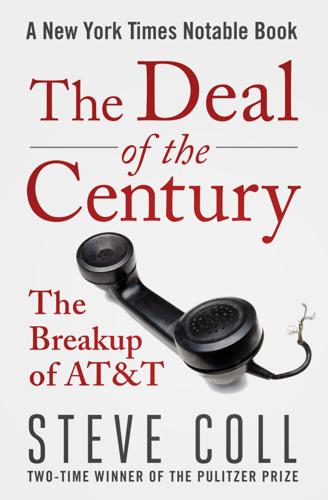
The Deal of the Century: The Breakup of AT&T
by
Steve Coll
Published 12 Jun 2017
The government’s suit, Saunders said frequently, boiled down to the MCI story, particularly the controversies over FX lines and Execunet. And that story, Saunders drawled, was the tale of “the biggest rip-off of the century.” Harold Greene was an intelligent man. He was a hard-working judge. When the case was laid out before him, Saunders believed, Greene would see the light, liberal bias or no liberal bias. And to see the judge in court was to sense that Saunders might be right about one thing, namely that Harold Greene decided a matter on its merits. He was such a friendly and unassuming man that it was hard to imagine him in the vanguard of a PTA revolt, never mind America’s civil rights revolution.
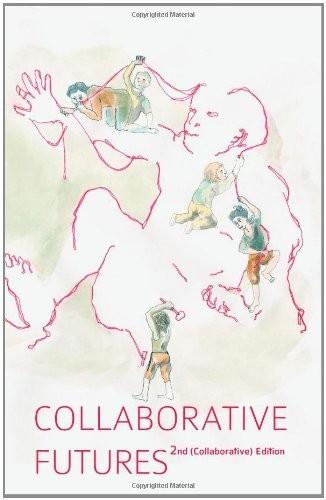
Collaborative Futures
by
Mike Linksvayer
,
Michael Mandiberg
and
Mushon Zer-Aviv
Published 24 Aug 2010
In the TV show The Colbert Report Stephen Colbert plays a satirical character of a right wing television host dedicated to defending Republican ideology by any means necessary. For example he constructs ridiculous arguments denying climate change. He is not concerned that this completely ignores reality, which he claims “has a Liberal bias”. On July 31st, 2006, Colbert ironically proposed the term "Wikiality" as a way to alter the perception of reality by editing a Wikipedia article. Colbert analyzed the interface in front of his audience and performed a live edit to the Elephants page, adding a claim that the Elephant population in Africa had tripled in the past 6 months.
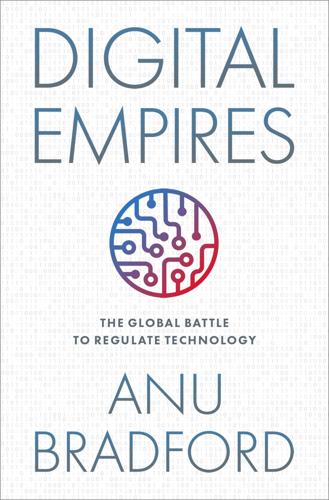
Digital Empires: The Global Battle to Regulate Technology
by
Anu Bradford
Published 25 Sep 2023
This could manipulate the electorate if these platforms harbored a political bias, determining through their algorithms what kind of messages reach, or fail to reach, voters. Twitter and Facebook have both been accused of demoting speech that reflects conservative views while elevating liberal messages,181 even though recent research finds no evidence of such a liberal bias.182 But given their access to users’ personal data, these internet platforms could—at least in theory—deploy their power to “engineer elections.”183 They could selectively display information to influence voting behavior, drawing on their vast knowledge of the internet users’ political beliefs or affiliations.
…
In the digital realm, these divisions became palpable recently when the illiberal, conservative, and nationalist governments of Poland and Hungary wanted to curtail tech companies’ ability to “limit the visibility of Christian, conservative, rightwing opinions.”226 Resembling the views of many Republicans in the US Congress, the Polish and Hungarian governments accused the tech companies of liberal bias and engagement in censorship. The Polish government even proposed a law banning social media companies from deleting content that was not contrary to Polish law.227 This proposed law has raised concerns, especially as hate speech, in particular content that targets LGBTQ+ communities or Muslims and refugees, is prevalent in Poland.228 These Polish and Hungarian measures are a direct challenge to the European rights-driven regulatory model.
…
For example, Republican members of the House Judiciary Committee released a report in October 2020 calling for legislative action to combat tech companies’ censorship of conservative voices.124 In September 2020, three Republican Congress members introduced a bill titled the “Online Freedom and Viewpoint Diversity Act,”125 aimed at holding tech companies accountable when they abuse their Section 230 protections and suppress free speech. These examples reveal how much of the US government’s focus has recently shifted from tackling authoritarian governments’ censorship practices abroad to allegations that the US tech companies harbor a liberal bias and engage in censorship practices at home. Despite these allegations, recent research shows no evidence of this anti-conservative bias in social media.126 Instead of censoring conservative views, the right-wing media in the US often features conservative propaganda, cultivates conspiracy theories, and disseminates disinformation in the news media.127 This suggests that US news outlets have engaged in the kind of propaganda that the US government’s internet freedom agenda for years sought to tackle abroad.
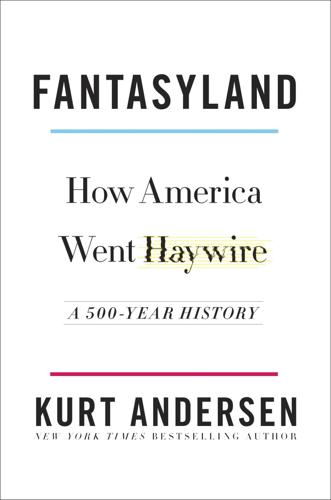
Fantasyland: How America Went Haywire: A 500-Year History
by
Kurt Andersen
Published 4 Sep 2017
In the words of one Times reporter, “Dayton believes in a Christ born of a virgin and resurrected from the tomb, a real Adam and a real Eve and a real serpent and a real angel with a flaming sword.” And so, he wrote, they “had to have an anti-evolution law. Such firmness, such bigotry, if you will, is bone of their bone and flesh of their flesh.” That was an age of mainstream media with a liberal bias. The celebrity principals were acting as attorneys but were mainly just acting, performers in America’s first great multimedia reality show. For a week, Darrow and Bryan joshed and derided each other in and out of court. On the trial’s penultimate day, it was reconvened outside on the courthouse lawn, so everyone could attend the improbable and fabulous denouement.
…
The term useful idiot was originally used to accuse liberals of serving the interests of true believers further left. In this instance, however, postmodern intellectuals—postpositivists, poststructuralists, social constructivists, postempiricists, epistemic relativists, cognitive relativists, descriptive relativists—turned out to be useful idiots for the American right. “Reality has a well-known liberal bias,” Stephen Colbert said, in character in 2006, mocking the beliefs-trump-facts impulse of today’s right. Neither side has been aware of it, but large factions of the elite left and the populist right have been wearing different uniforms on the same team—the Fantasyland team. * * * *1 What is it with America’s nineteenth- and twentieth-century imports from German-speaking Europe?
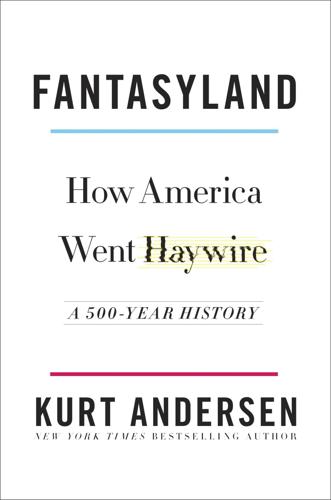
Fantasyland
by
Kurt Andersen
Published 5 Sep 2017
In the words of one Times reporter, “Dayton believes in a Christ born of a virgin and resurrected from the tomb, a real Adam and a real Eve and a real serpent and a real angel with a flaming sword.” And so, he wrote, they “had to have an anti-evolution law. Such firmness, such bigotry, if you will, is bone of their bone and flesh of their flesh.” That was an age of mainstream media with a liberal bias. The celebrity principals were acting as attorneys but were mainly just acting, performers in America’s first great multimedia reality show. For a week, Darrow and Bryan joshed and derided each other in and out of court. On the trial’s penultimate day, it was reconvened outside on the courthouse lawn, so everyone could attend the improbable and fabulous denouement.
…
The term useful idiot was originally used to accuse liberals of serving the interests of true believers further left. In this instance, however, postmodern intellectuals—postpositivists, poststructuralists, social constructivists, postempiricists, epistemic relativists, cognitive relativists, descriptive relativists—turned out to be useful idiots for the American right. “Reality has a well-known liberal bias,” Stephen Colbert said, in character in 2006, mocking the beliefs-trump-facts impulse of today’s right. Neither side has been aware of it, but large factions of the elite left and the populist right have been wearing different uniforms on the same team—the Fantasyland team. * * * *1 What is it with America’s nineteenth- and twentieth-century imports from German-speaking Europe?
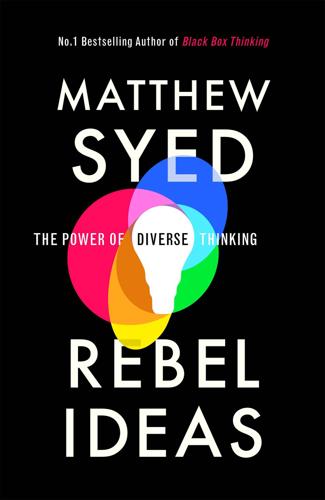
Rebel Ideas: The Power of Diverse Thinking
by
Matthew Syed
Published 9 Sep 2019
This would be pretty much impossible in such an interconnected world. Instead, he seeks to delegitimise alternative voices. He attacks the integrity of those who offer different views, and defames their motives. His insistence is not (just) that opponents are wrong, but that they are malicious. He argues that the mainstream media expresses a liberal bias. They have set out to destroy Limbaugh and his followers, because they can’t abide the truth he speaks. Jamieson and Cappella write: ‘The conservative opinion hosts underscore the notion that the mainstream media use a double standard that systematically disadvantages conservatives and their beliefs.’
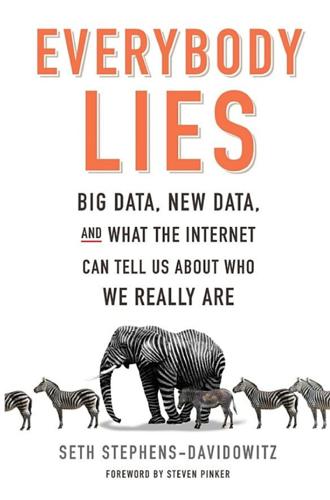
Everybody Lies: Big Data, New Data, and What the Internet Can Tell Us About Who We Really Are
by
Seth Stephens-Davidowitz
Published 8 May 2017
The average newspaper is more similar, in the words it uses, to a Democratic congressperson than it is to a Republican congressperson. “Aha!” conservative readers may be ready to scream, “I told you so!” Many conservatives have long suspected newspapers have been biased to try to manipulate the masses to support left-wing viewpoints. Not so, say the authors. In fact, the liberal bias is well calibrated to what newspaper readers want. Newspaper readership, on average, tilts a bit left. (They have data on that.) And newspapers, on average, tilt a bit left to give their readers the viewpoints they demand. There is no grand conspiracy. There is just capitalism. The news media, Gentzkow and Shapiro’s results imply, often operate like every other industry on the planet.
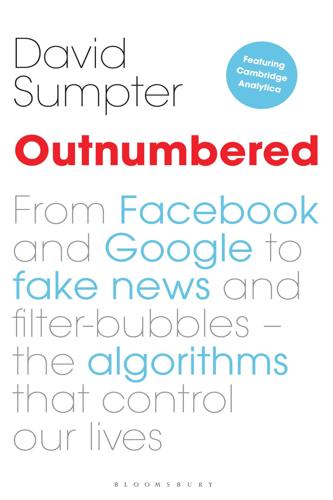
Outnumbered: From Facebook and Google to Fake News and Filter-Bubbles – the Algorithms That Control Our Lives
by
David Sumpter
Published 18 Jun 2018
Computer scientist Juhi Kulshrestha and her colleagues found that searches for Hillary Clinton on Twitter during the election, tended to reveal tweets that were more sympathetic to her than reflected in the overall sentiment of the tweets made. Searches for Donald Trump, on the other hand, reinforced the negative image of the candidate. As in the UK, Twitter users have a slight liberal bias in the US and the way Twitter filters this bias serves to (slightly) increase it. Reading the research on Twitter and conducting my own experiments led me to similar conclusions to those I had drawn from Lada Adamic’s work at Facebook. For people who follow newspapers and keep updated with current affairs, like I do, Twitter and Facebook are not particularly strong echo chambers.
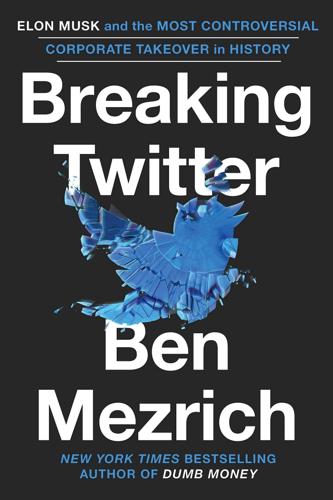
Breaking Twitter: Elon Musk and the Most Controversial Corporate Takeover in History
by
Ben Mezrich
Published 6 Nov 2023
More than anything, the Twitter Files seemed to showcase the immense effort that went into running a site as vast and complex as Twitter. They revealed that mistakes were made, that people both inside and outside of the platform regretted certain decisions, and that they tried to correct them. But it was also clear, especially to critics from the right, that typically Twitter’s moderation seemed to fall in the direction of liberal bias. And to those critics even farther to the right, it seemed that something much more subversive had been going on: that intelligence agencies and politicians had pushed Twitter to ban users and silence posts for entirely political purposes. Elon himself had put the view succinctly, on December 10, just two days before: Twitter is both a social media company and a crime scene.
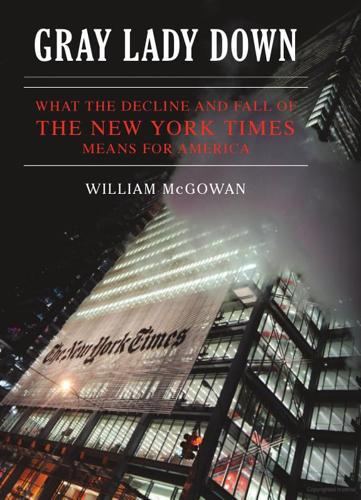
Gray Lady Down: What the Decline and Fall of the New York Times Means for America
by
William McGowan
Published 16 Nov 2010
One particularly egregious case of double standards involved a McCain op-ed piece backing “the surge” in Iraq that the Times rejected shortly after it had run one against the surge by Obama. The Columbia Journalism Review, hardly a right-wing publication, said that the Times’ “tenuous arguments about [the] newsworthiness” of McCain’s op-ed fed “the paper’s reputation as a vehicle for thinly veiled liberal bias.” In a cable segment on the issue, the former Clinton press aide DeeDee Meyers said it was a “legitimate question” to ask how “balanced” between the two candidates the coverage was. Even some Timesmen were scratching their heads. On the cable show Hardball, the paper’s political writer John Harwood said: “The question is how different is the standard when you are talking about a nominee of a major party to be president of the United States....
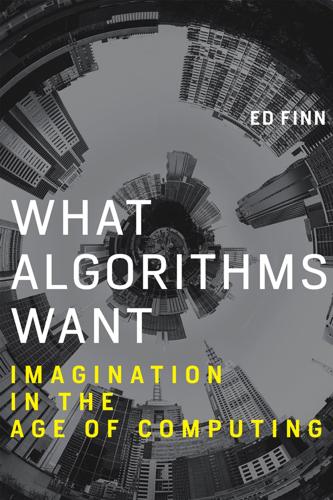
What Algorithms Want: Imagination in the Age of Computing
by
Ed Finn
Published 10 Mar 2017
These contract workers were relegated to an unused conference room and asked to perform a kind of algorithmic judgment, selecting stories according to a carefully defined set of instructions laid out in a memo titled “Trending Review Guidelines.”35 Both the algorithm-like instructions and the humans enacting them were accused of introducing liberal bias into Trending Topics, and Facebook has since announced plans to completely overhaul how Trending Topics functions. The revelation underscores the now-familiar idea of humans hiding within a supposedly algorithmic black box, but it also reveals how solipsistic our cultural systems have become. The Facebook memo instructed contractors to track just ten news sites, including CNN, the BBC, Fox News, and the Guardian, in evaluating whether a story merits “national” importance.
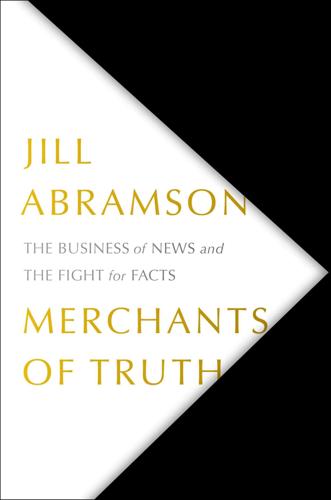
Merchants of Truth: The Business of News and the Fight for Facts
by
Jill Abramson
Published 5 Feb 2019
Each successive adaptation played to politically polarized constituencies. On the right, groups had sorted themselves into coherent ideological camps. Some groups congregated around the ethos of nationalism, while others became de facto clearinghouses for the anti-immigration cause or haters of the liberal bias that was supposedly running rampant in the mainstream media. Some were concerned with the dystopian conspiracies they identified among power players on the left; others preferred to keep the conversation centered on defending the reputation of police agencies unfairly besmirched by unpatriotic protesters.
…
.: of 2004, 20, 21 of 2008, 98, 99, 126 of 2012, 128–29, 131–33, 135–37 elections, U.S., of 2016, 2 BuzzFeed coverage of, 138, 313–17, 320 divisiveness of, 281 Facebook and, 303 fake news and, 320, 322 Russian interference in, 326, 341–42, 381, 382, 383 see also Clinton, Hillary, in 2016 election campaign; Trump, Donald, in 2016 election campaign Emanuel, Ari, 178 Emergent, 310 Emerson Collective, 343 emotional charge, of news stories, 111 Entous, Adam, 406, 411 Esquire, 268 Eyebeam, 18–19 Facebook, 6, 31–32, 106, 108, 132, 204, 275, 415 accused of liberal bias, 292–93 Audience Optimization Tool of, 282 beginnings of, 95–96 BuzzFeed added to list of trusted sources of, 317 BuzzFeed’s community-specific pages on, 337–38 BuzzFeed’s reliance on, 103, 104, 132, 153, 272, 276, 277, 295, 301, 303–4, 311, 329, 428 Cambridge Analytica and, 279, 298 conspiracy theory stories on, 296 constantly changing algorithms of, 105–6, 271–72, 282, 290–91, 295, 302, 329, 332, 337 criticized for lack of control over content, 154 Custom Audiences tool of, 298 dangerous omnipotence of, 400 Dark Post tool of, 298–99 data mining by, 271, 274, 278, 341 data security issues of, 279, 342, 400 decline of sharing on, 282 demographic of, 106–7 digital advertising dominated by, 7, 27, 254, 367, 397, 404, 428 emotional resonance as touchstone for, 273 expanded reach of publishers’ posts on, 291 explosive growth of, 31, 104 fake news spread by, 277, 289, 295, 296–97, 317, 322, 427–28 growing influence of, 274, 280, 303, 309 human editors controversy at, 291–94, 295–96, 317 Instant Articles on, 267, 280–81, 329–30, 412 Like button of, 107–8, 109 live-video streaming tool of, 314 news content on, 124 in pivot to video, 329, 332 political ads on, 278 political polarization and, 273–74, 279–80, 281, 282–83, 312 Post and, 96–97, 232–33 priority of friends vs. publishers’ posts on, 276, 281–82 psychographics and, 278–79 publishers and, 272–73 ranking of stories on, 275–77 Russian fake news spread by, 289, 341–42, 420 “sentiment data” of, 303–5 “social contagion” experiment of, 303 supposed neutrality of, 274 targeted advertising on, 277–78, 298, 341 Facebook (cont.)
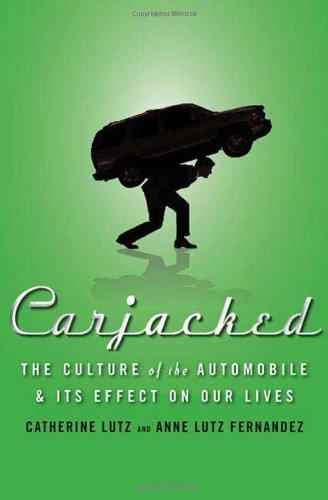
Carjacked: The Culture of the Automobile and Its Effect on Our Lives
by
Catherine Lutz
and
Anne Lutz Fernandez
Published 5 Jan 2010
One Florida driver vehemently agreed with the talk radio host—Rush Limbaugh, she thought—who she remembered arguing that the real reason 150 Carjacked why Al Gore was against suburban sprawl was not because it led to increased pollution from longer commutes but because he and his liberal cohorts didn’t like it that so many Americans were listening to conservative talk radio. Because American conservatives tend to believe that television and newspapers have a liberal bias, they view talk radio as their counterbalancing political and social voice, which they believe to be otherwise repressed.55 And talk radio is overwhelmingly conservative. The top ten hosts are all conservative or self-described moderates who lean conservative. The top two, Rush Limbaugh and Sean Hannity, have by far the largest audiences, with Limbaugh pulling in a weekly cumulative audience of 14 million listeners and Hannity garnering 13 million.56 These talkers have a considerable influence on their listeners.
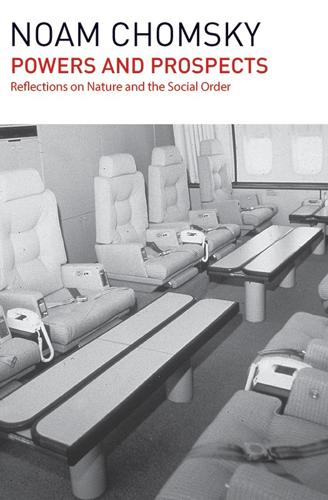
Powers and Prospects
by
Noam Chomsky
Published 16 Sep 2015
And the revolutionaries reflect the will of the people, Prowse writes: ‘polls show 80 percent approval for the goal of a balanced budget’.23 Richardson no doubt reports what his source believes, or at least prefers to believe; and Prowse is right about the headlines and what he may well hear on the major elite news program on National Public Radio, regularly accused of liberal bias, where a leading commentator, Robert Siegel, reports that ‘Americans voted for a balanced budget’, detailing the cuts in education and welfare pursuant to the public will. But if we move beyond the Edwardian Room and the headlines, we find a different picture. It is true that most people would prefer a balanced budget, just as they would like to see their household budgets balanced, with all debt magically removed at no cost.
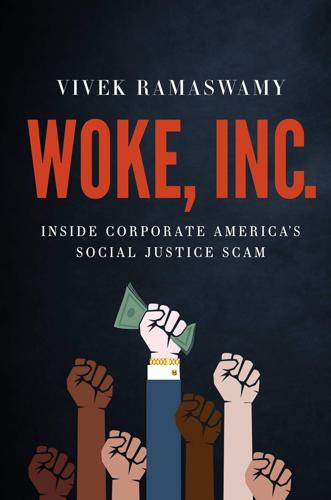
Woke, Inc: Inside Corporate America's Social Justice Scam
by
Vivek Ramaswamy
Published 16 Aug 2021
Epstein’s team of 733 field agents were deployed in three key swing states. They preserved approximately 500,000 ephemeral online experiences and found that Google search results were strongly biased in favor of liberals. While bias was shown to every group in Google searches, conservatives were shown slightly greater liberal bias in their search results.13 Having already censored users and websites with impunity, social media giants then took the next major leap—censoring articles published by major newspapers. In the weeks leading up to the 2020 presidential election, the New York Post ran an article featuring Hunter Biden, son of Joe Biden.
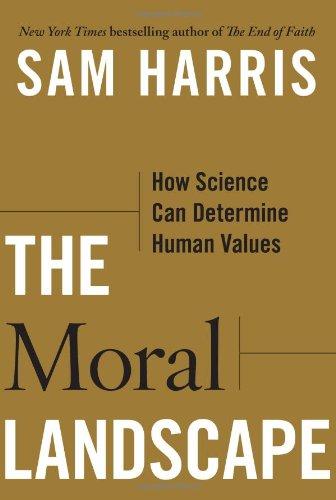
The Moral Landscape: How Science Can Determine Human Values
by
Sam Harris
Published 5 Oct 2010
55 Interesting question. Are these the same ancient texts that view slavery as morally unproblematic? Perhaps slavery has no moral implications after all—otherwise, surely these ancient texts would have something of substance to say against it. Could abolition have been the ultimate instance of liberal bias? Or, following Haidt’s logic, why not ask, “if physics is just a system of laws that explains the structure of the universe in terms of mass and energy, why do so many ancient texts devote so much space to immaterial influences and miraculous acts of God?” Why indeed. Haidt appears to consider it an intellectual virtue to accept, uncritically, the moral categories of his subjects.
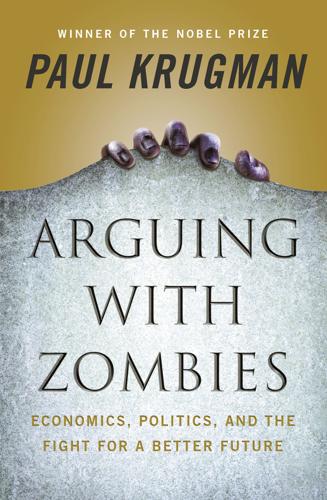
Arguing With Zombies: Economics, Politics, and the Fight for a Better Future
by
Paul Krugman
Published 28 Jan 2020
Partly this is a matter of marketing—insider gossip makes better TV than budget arithmetic. But there has also been a political aspect: the mainstream media are fanatically determined to seem evenhanded. One of the great jokes of American politics is the insistence by conservatives that the media have a liberal bias. The truth is that reporters have failed to call Mr. Bush to account on even the most outrageous misstatements, presumably for fear that they might be accused of partisanship. If a presidential candidate were to declare that the earth is flat, you would be sure to see a news analysis under the headline “Shape of the Planet: Both Sides Have a Point.”
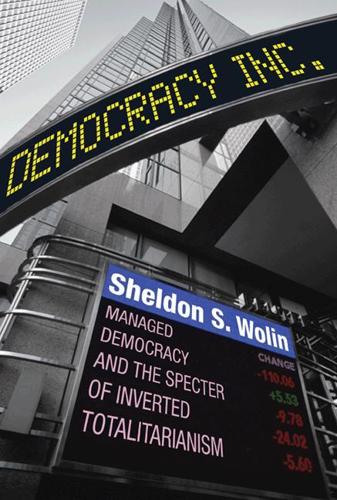
Democracy Incorporated
by
Sheldon S. Wolin
Published 7 Apr 2008
“The Decline of America’s Armed Forces,” in Present Dangers: Crisis and Opportunity in American Foreign and Defense Policy, ed. Robert Kagan and William Kristol (San Francisco, 2000), as cited by Bacevich, The New American Militarism, 86. 18. The New York Times reported that the then head of CNN “made a public show of meeting with Republican leaders in Washington to discuss CNN’s perceived liberal bias.” According to the Times CNN subsequently became more conservative. April 16, 2003, B-9. 19. See Marie Gottschalk, The Prison and the Gallows: The Politics of Mass Incarceration in America (Cambridge: Cambridge University Press, 2006), 2, 15, 19. See also Timothy V. Kaufman-Osborn, From Noose to Needle: Capital Punishment and the Late Liberal State (Ann Arbor: University of Michigan Press, 2002), 166–68, 173–74. 20.
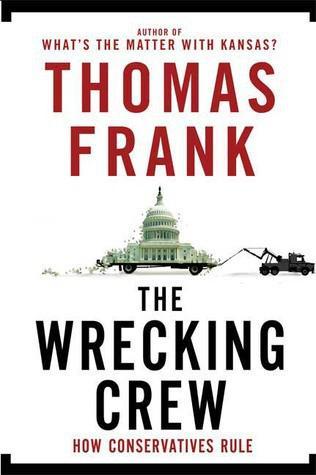
The Wrecking Crew: How Conservatives Rule
by
Thomas Frank
Published 5 Aug 2008
An editorial in National Review for March 7 of that year speculated in its highfalutin way that, “granted the propriety of this field of activity, it might still have seemed to the public and to Congress, if the facts had been openly before them, that some other campus organizations should have shared in the largesse, and that among the young Lochinvars sent to do battle in the international conclaves a few hard anti-Communists and even an occasional enthusiastic pro-American might have been included.” The explanation for the CIA’s blundering, the wingers decided, was liberal bias. As Howard Phillips himself put it in the Washington Post for July 3, 1974, the NSA incident revealed the CIA to be “an instrument of establishment liberalism.” In addition to Phillips, two other figures who would later play a role in Abramoff’s own clandestinely funded youth organization—Donald (“Buz”) Lukens and Charles Lichenstein—made similar points.
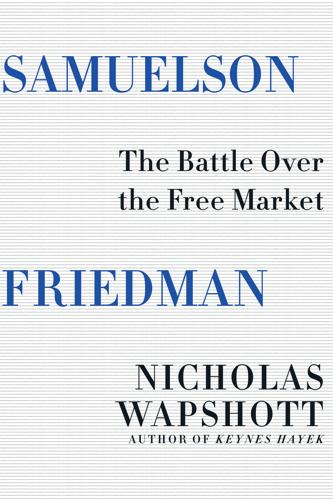
Samuelson Friedman: The Battle Over the Free Market
by
Nicholas Wapshott
Published 2 Aug 2021
Bush and, 258 Goldwater’s economic adviser, 51–53, 139–41, 166, 293 government regulation disliked by, 158 on government spending, 79, 208, 209–11, 252–53, 258 Great Depression causes, 34–35, 44, 47, 103–4, 178, 323 as Hayek’s heir apparent, 37 higher interest rates to control inflation, 128, 130 on hyperinflation, 151, 170–71, 203 impact of Newsweek debate with Samuelson, 9, 53, 54 import quotas opposed by, 201 inflation, cause of, 61, 93–94, 115, 126–27, 129–30, 136–37 inflation, explanation of, 74, 77–78, 125, 128, 130–31 inflation, solution to, 113, 127–28, 131–32, 151, 197 influence on economics, 1960–1980, 171, 174, 197–98 influence on Nixon’s administration, 156–57 intellectuals as soft on collectivism, 219, 334–35 on intervention by government, 47–48, 87, 222–23, 236, 278 invention of payroll withholding tax, 32–33 and Japan’s liquidity crisis, 280 on John F. Kennedy, 46 Joint Economic Committee of Congress hearing, 152–56 on labor unions, 47, 110, 153 legacy of, 289–94 on legalizing drugs, 50 on liberal bias in the press, 48–49, 52 libertarianism, 48–49, 69, 73, 86, 138, 217–18, 311 on licensing of doctors, 30, 48, 173, 269, 291 macroeconomics, 95–96, 268 on managing the economy, 95 market-based system supported by, 48, 70, 278 on monetary policy, 70, 106–8, 109, 111, 113, 129–31, 289–90 Mont Pèlerin meetings, 35–37, 82, 309 negative income tax plan, 143, 173, 292 Nixon’s 1968 campaign, 141–42, 157 Nobel Prize for economics, 26, 164–71 opposition to military draft, 49–50, 156, 290–91 opposition to wage and price controls, 150–52, 153–55, 157 outsider status, 74, 76, 132, 138, 174, 291 papers archived at Hoover Institution, 284 PhD thesis, 33 Pinochet and, 160–61, 168, 169, 170 popularity in Soviet bloc, 215, 254 praise for Samuelson, 162–63 price system seen as virtuous, 80 on property rights, 80 and protests at Nobel Prize for, 168, 169 quantity theory of money, 45, 95, 98–100, 101–3, 104–5, 107, 126–27 reaction to Samuelson’s 1995 note, 254 Reagan monetary policy and, 201–2 Reagan’s economic policy meeting and, 200–201 reputation in Britain, 229–30 research on role of money, 34–35, 103–5, 107, 262, 280, 320 response to 9/11 terrorist attacks, 255 return to Chicago, 33, 34 rivalry with Samuelson, 10, 27, 34, 71, 83, 132, 295–96 role of individual self-interest in society, 90, 91 Samuelson friendship with, 9–10, 254 in Samuelson’s Economics, 74, 171–73, 315 school voucher proposal, 50, 197 “shock treatment” in Chile recommended, 160–61, 169, 327 similarities to Samuelson, 11 on socialism, 217, 334 Soviet economy and, 218, 334 stagflation and, 119, 170–71, 207, 289, 322 Statistical Research Group at Columbia, 33 on steady money supply growth, 106, 113, 130–31, 140, 157, 203, 266 study at Columbia University, 28 study at Rutgers University, 26–27 supply-side economics and, 204, 207–8 suspicion of big government, 69 on taxation, 32, 79, 85, 155–56, 208, 290 on tax cuts, 44, 155–56, 208, 209, 211, 252 on taxes in wartime, 32 television series, 197 Thatcher’s election and, 239 “There’s no such thing as a free lunch,” 114, 226, 321 and A Tract by Keynes, 94–96 tributes after death, 265–67, 268–69 on unemployment, 110–11, 304–5 at University of Chicago, 27–29, 70, 82, 99, 254 on velocity of money, 61, 93–94, 106, 109 view of Greenspan, 259–60 visit to Adam Smith’s grave, 43 visit to the Soviet Union, 215, 334 on Volcker’s Fed policies, 193–94, 195–96, 200–201, 202–4, 212, 214 Volcker’s skepticism about monetarism, 178–80, 181–85, 189, 235 “We are all Keynesians now,” 75 on the welfare state, 74, 76, 173, 230 at Wisconsin-Madison University, 31 work for New Deal programs, 29–31, 311 writing style of Newsweek columns, 10, 57–60 see also specific titles Friedman, Rose Director Aaron Director and, 11, 27 at Bureau of Home Economics, 309 in Cambridge, 39–40 death, 269 marriage, 27 on Nobel Prize for economics, 161–62, 164, 165, 166 resentment of Samuelson’s “privilege,” 27–28 Samuelson’s notes and, 254, 265–66 urging Friedman to work for Newsweek, 8–9, 11 visit to Adam Smith’s grave, 43 visit to the Soviet Union, 215, 334 Friedman, Sára Ethel (née Landau), 25–26 Galbraith, John Kenneth Affluent Society, The, 5, 302 birth and death, 302 favorable comments on the Soviet Union, 216, 219 Johnson and, 7 Kennedy and, 5–6, 22 Life in Our Times, A, 224–25 Nixon and, 147 opposition to Vietnam War, 7, 312 price controls demanded, 152 television series, 197 Garvy, George, 94, 319 Gary, Indiana, 11–12 GATT (General Agreement on Tariffs and Trade, 291 General Motors, 146, 153 General Theory of Employment, Interest and Money, The (Keynes) on Great Depression, 106, 288 Hansen’s exposition of, 15 Hayek on, 44, 311 increasing aggregate demand, 204, 235 key elements and questions, 18–19, 60–61 macroeconomics, 101, 133, 302 monetary theory in, 101–2, 135 multiplier, 18, 97 propensity to consume, 19, 100, 133 publication, 8, 39, 55, 98, 133 quantity theory of money, 98 in Samuelson’s Economics, 18–19 Gilmour, Ian, 230, 231, 236, 244–45 Gingrich, Newt, 49, 251–53, 312 Giuliani, Rudolph (Rudy), 49, 312 God and Man at Yale (Buckley), 19, 306, 324 gold reserves, 148, 325–26 gold standard, 108, 112, 142, 185–86 Goldwater, Barry, 51–53, 139–41, 166, 200, 293, 312 Graham, Katharine Meyer, 4–5, 225, 302 Graham, Philip Leslie, 3–4, 5, 301–2 Great Depression causes, 34–35, 44, 47, 82, 103–5, 106, 323 deflation, 107 effects of, 14–15, 26, 30–31, 104 Keynesian economics and, 8, 23, 74–75, 98, 104, 106–7 Roosevelt and, 78, 104 Great Moderation, 271, 278, 282 Greenspan, Alan, 200, 255–56, 259–60, 271, 338 Griffiths, Brian, 246, 337 Guion, Connie, 2 Haberler, Gottfried von, 15, 305 Halberstam, David, 3, 301 Hansen, Alvin, 15, 304, 305 Hansen-Samuelson model, 14, 304 Harberger, Arnold C., 160, 168–69, 327 Harcourt, William, 75, 315 Harriman, Averell, 21, 306 Hayek, Friedrich attempt to join Chicago’s economics department, 37–38, 303 Ayn Rand and, 81 democracy and economics, 66 duel with Keynes in 1931, 9, 38, 53, 69 on failure of monetary theories, 213–14 on Friedman and macroeconomics, 95–96 on Friedman’s positive economics essay, 44 on intervention by government, 65–68, 87, 222 on Keynes’s General Theory, 44, 311 on managing the economy, 95 on measuring money in an economy, 213–14 microeconomics, 76 Mont Pèlerin meetings, 35–37, 82, 309 Nobel Prize for economics, 164, 166 popularity in Soviet bloc, 215 post–World War I experience in Austria, 61–62, 91 rejection of macroeconomics, 76, 95–96 Road to Serfdom, The, 35–36, 66–68, 87, 215, 222, 237, 334 in Samuelson’s Economics, 74, 315 on taxes in wartime, 309 on unemployment, 199 warnings about politicians, 116, 141, 199 see also specific titles Hazlitt, Henry Stuart, 5, 7–8, 302 Healey, Denis, 180–81, 190, 227–29, 230–31, 242, 330 Heath, Edward defeat in 1974 election, 231–32, 233, 235–36 economic policies, 232–33, 235 on monetarism, 233, 236, 239–40, 242, 243 Heller, Walter H., 116, 307, 321 Heller, Walter W., 116, 307, 321 Hicks, John, 41, 101, 343 History of Economic Thought, A (Barber), 73 Hobhouse, Leonard Trelawny, 88–89, 318 Hoff, Trygve, 309 Holmes, Oliver Wendell Jr., 85, 317 Horse Feathers (movie), 48, 311 Hotelling, Harold, 28, 307 Howe, Geoffrey, 239, 242, 243–44, 245, 246, 337 Hughes, Emmet John, 4–5, 302 Humphrey, Hubert, 142 Hutchins, Robert, 33, 34, 309 hyperinflation in Austria after World War I, 62, 91, 122, 322 Friedman on, 151, 170–71, 203 Keynes on, 62 Samuelson on, 121, 152 in U.S. from 1960s onward, 91–92, 115, 120–22, 125 Volcker and, 178, 202 in Weimar Germany, 115, 122, 322 see also inflation income-expenditure model, 19, 99, 319 Income from Independent Professional Practice (Friedman and Kuznets), 33, 308 IndyMac, 272 inflation cost-push inflation, 121, 124, 152 demand-pull inflation, 77, 121–22, 124 Federal Reserve mandate, 109, 178 Friedman explanation of, 74, 77–78, 125, 128, 130–31 Friedman on causes of, 61, 93–94, 115, 126–27, 129–30, 136–37 Friedman solution to, 113, 127–28, 131–32, 151, 197 as hidden tax, 77–78 higher interest rates urged to control, 122, 123, 128, 130 Keynesians on causes of, 118, 137 Keynes on, 62, 129 monetarist explanation of, 74 Nixon and, 145–50 raising taxes to control, 123–24 rates in U.S., 1975–1980, 175, 176 “rational expectations,” 96, 115, 180–81 Samuelson on problem of, 74, 118–22, 123, 176 Samuelson on remedies for, 122–25 sharp rise from 1960s onward, 115, 120–21, 125, 183–84, 186, 188, 192 in the U.K., 227 Vietnam War and, 121, 145 see also hyperinflation; stagflation “Inflation is Caused by Governments” (Joseph), 233 interest rates as cause of Depression, 34–35, 44, 103, 104, 257 discount rate, 104, 186–87, 188, 212, 282 federal funds rate, 181, 186–87, 188, 190, 192, 263 higher rates to control inflation, 122, 123, 128, 130 “natural” and “market” rates of interest, 110–11, 114 prime rate, 187, 194–95 rate cuts during financial freeze, 276 rate cuts to prevent recession, 255–56 risks of artificially low rates, 66, 107–9 and value of money, 45 intervention by government COVID-19 pandemic, 287–89 by Federal Reserve during financial freeze, 273–77 by Federal Reserve to keep dollar steady, 175 Friedman on, 47–48, 87, 222–23, 236, 278 Hayek on, 65–68, 87, 222 Keynes on, 62–65, 68–69 Samuelson on, 65, 87, 88–90 invisible hand, 90, 91, 95 Japan, liquidity crisis in 1990s, 280 Jay, Peter, 228–29, 335 Johnson, Harry, 39, 310, 323 Johnson, Lyndon Baines, 5, 7, 51–53, 139, 140, 145, 302 Joseph, Keith about, 335 Centre for Policy Studies (CPS), 233 monetarism, 233–35, 237–38, 239 sound money policy and, 234, 238 Thatcher introduced to monetarism by, 237–38, 239 on unemployment, 234–35 views on the poor, 236, 336 JPMorgan, 273 Kahn, Richard, 39, 41, 310 Kaldor, Nicholas, 39, 306, 310 Kennedy, John Fitzgerald assassination, 5, 6, 302, 325 Camelot, 5, 22, 119, 302 Friedman on, 46 Galbraith and, 5–6, 22 Samuelson and, 6, 21–24, 120, 138 Kennedy, Joseph, 22 Keynesianism critique of The Road to Serfdom, 8, 68–69, 87 Great Depression and, 8, 23, 74–75, 98, 104, 106–7 macroeconomics, 18 multiplier effect, 14, 18–19, 39, 97, 100, 133 rift between Keynesians and conservatives, 38–40 stagflation and, 118–19, 289 Keynes, John Maynard about, generally, 302 aggregate demand, increasing, 23, 204, 235, 263, 339 Bretton Woods agreement, 40, 68, 142–43, 148, 177, 185, 310 Cambridge Circus, 39–41, 93, 290, 310 on capitalism, 65 on changing his mind, 42 duel with Hayek in 1931, 9, 38, 53, 69 on equilibrium in the economy, 63, 97 failure of free market, 64 fiscal policy and, 19, 106–8 Friedman’s article not published by, 28–29 Hayek challenge of, 9, 303 income-expenditure model, 19, 99, 319 on inflation, 62, 129 on intervention by government, 62–65, 68–69 “In the long run we are all dead,” 63, 96, 136, 324 on laissez-faire system, 63–64, 65 macroeconomics, 75–76, 94, 101, 133, 302 on managing the economy, 95 on monetary policy, 135 on moral values in economics, 69 multiplier, 14, 18–19, 39, 97, 100, 133 on quantity theory of money, 63, 94, 96–97, 98, 106 “rational expectations,” 96 tax cuts recommended by, 23, 204 on taxes in wartime, 32, 309 on unemployment, 15, 64, 234–35 on velocity of money, 63, 94, 97, 98 “You cannot push on a string,” 256, 263, 277, 338 see also specific titles Keynes, John Neville, 43 Kipling, Rudyard, 57, 313 Knight, Frank, 14, 28, 34, 82–83, 99, 304 Krugman, Paul, 285, 322 Kuhn, Thomas S., 94, 319 Kuznets, Simon, 29–30, 33, 71, 308 Laffer, Arthur lack of PhD, 206–7, 332 Laffer Curve and taxes, 205, 206, 208, 209, 332 supply-side economics, 205, 206–7, 250, 332 Lawson, Nigel, 245, 247, 337 Lehman Brothers, 275 Leigh-Pemberton, Robin, 246 Leijonhufvud, Alex, 283, 341 Leontief, Wassily, 15, 16, 29, 305 leveraging by banks, 272 Life in Our Times, A (Galbraith), 224–25 Lippmann, Walter, 4, 283, 302 Lucas, Robert Jr., 82, 283, 287, 317 Luce, Henry, 3 Luria, S.
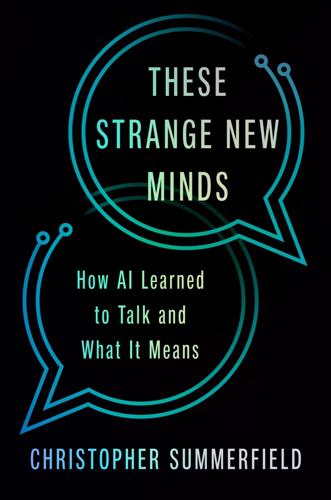
These Strange New Minds: How AI Learned to Talk and What It Means
by
Christopher Summerfield
Published 11 Mar 2025
In a paper from DeepMind describing the training of an LLM called Sparrow,[*5] the authors report that 66% of their exclusively UK-based raters had obtained a college degree, which is about double the national average. They were also predominantly white (81%), heterosexual (84%) and mostly earned incomes higher than the median UK salary (72%). So it’s perhaps unsurprising that LLMs adopt a liberal bias after fine-tuning, because AI researchers define desirable behaviour in terms of the preferences of more educated people. Fine-tuning is supposed to align LLMs to human values, but it seems to miss the mark in at least one major way. When the authors of the political typology study examined the full distribution of model responses (the relative frequency of replies falling in categories such as ‘strongly agree’ or ‘disagree’), they observed a remarkable phenomenon: fine-tuning actually made GPT-3 less similar to the overall US population.
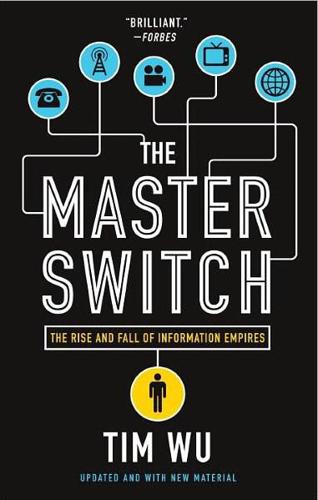
The Master Switch: The Rise and Fall of Information Empires
by
Tim Wu
Published 2 Nov 2010
Thus by the end of the seventies the cable experiment was in full swing. It remained to be seen, however, what the medium would become. * Whitehead was a character of fascinating contradictions. On the one hand, he would be a point man in Nixon’s increasingly fierce battles with the news media over Vietnam and Watergate, imputing to them liberal bias by describing their content with the deathless phrases “elitist gossip” and “ideological plugola.” On the other hand, he was one of five federal officials working behind the scenes to lay the groundwork for Gerald Ford’s presidency as the cauldron of Watergate was boiling over. CHAPTER 14 Broken Bell Clay Whitehead, Nixon’s telecommunications czar, became in 1974 the first government official to call openly for an end to the Bell monopoly.
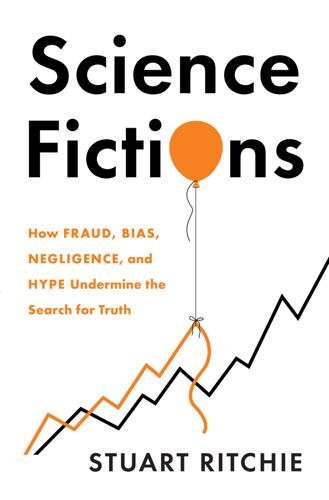
Science Fictions: How Fraud, Bias, Negligence, and Hype Undermine the Search for Truth
by
Stuart Ritchie
Published 20 Jul 2020
Not only that, but priorities for what to research in the first place might become skewed: scientists might pay disproportionate attention to some politically acceptable topics, even if they’re backed by relatively weak evidence, and avoid those that go against a particular narrative, even if they’re based on solid data.99 Critics of the liberal bias in psychology have turned their fire, for instance, on the idea of stereotype threat.100 It’s the idea that girls’ mathematics test performance suffers when they’re reminded of the stereotype that ‘boys are better at maths’. This idea would seem much more intuitively plausible to someone who has socially liberal political views, in which stereotypes and sexist prejudice are considered powerful forces that affect individuals and shape society.
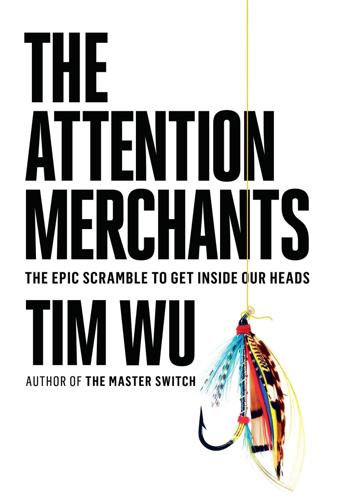
The Attention Merchants: The Epic Scramble to Get Inside Our Heads
by
Tim Wu
Published 14 May 2016
Sandra Salmans, “Playboy’s Hopes in Cable TV,” New York Times, March 15, 1983, http://www.nytimes.com/1983/03/15/business/playboy-s-hopes-in-cable-tv.html. 16. Murdoch held conservative political opinions, leading to speculation that the news broadcast would offer a “conservative alternative to what he views as liberal bias among traditional news.” However, Murdoch, at the time, claimed that he would not champion a conservative agenda because he believed “it’s more important to be fair.” See Lawrie Mifflin, “At the New Fox News Channel, the Buzzword Is Fairness, Separating News from Bias,” New York Times, October 7, 1996, http://www.nytimes.com/1996/10/07/business/at-the-new-fox-news-channel-the-buzzword-is-fairness-separating-news-from-bias.html. 17.
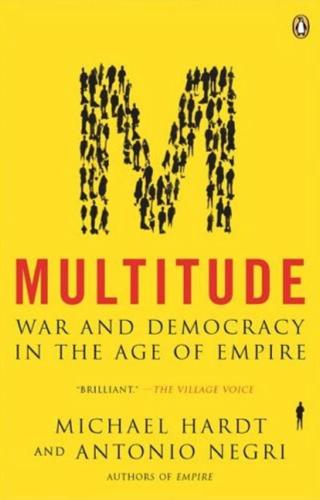
Multitude: War and Democracy in the Age of Empire
by
Michael Hardt
and
Antonio Negri
Published 1 Jan 2004
(New York: Pantheon, 2002). 53 On the public psychology of political opinions, beliefs, and perceptions, see the work of Murray Edelman, such as Politics as Symbolic Action: Mass Arousal and Quiescence (New York: Academic Press, 1971). 54 Right-wing politicians and scholars in the United States lament what they see as the liberal bias of the mainstream media and its manipulation of public opinion. See, for example, Matthew Robinson, Mobocracy: How the Media’s Obsession with Polling Twists the News, Alters Elections, and Undermines Democracy (Roseville, CA: Forum, 2002). There are also numerous books by left-wing journalists and scholars that counter that the mainstream media is not liberal but conservative.
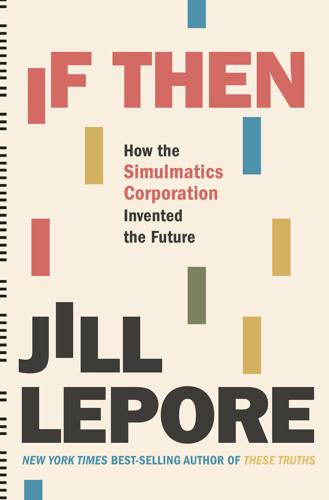
If Then: How Simulmatics Corporation Invented the Future
by
Jill Lepore
Published 14 Sep 2020
Buckley Jr. launched National Review and pledged to try to stop history. In 1964, for the first time, conservatives took over a Republican National Convention. They damned moderation, booing Nelson Rockefeller when he called for it from the rostrum. They damned calls for decorum. They mocked the press, attacking it for liberal bias. “You know, these nighttime news shows sound to me like they’re being broadcast from Moscow,” said one delegate, riding in an elevator with Chet Huntley and David Brinkley, the anchors of NBC Nightly News. They applauded calls for halting the civil rights revolution: more than seven in ten of the GOP delegates voted against a platform plank that would have affirmed the constitutionality of the 1964 Civil Rights Act.
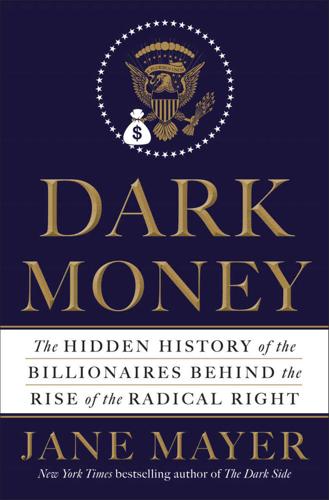
Dark Money: The Hidden History of the Billionaires Behind the Rise of the Radical Right
by
Jane Mayer
Published 19 Jan 2016
Disoriented, Brookings and the Times rushed to add conservatives to their ranks in hopes of demonstrating their nonpartisanship. Brookings hurriedly made a Republican its president, while the Times in 1973 added Nixon’s former speechwriter Bill Safire to its op-ed page as a columnist. In 1976, after the Scaife-funded Institute for Contemporary Studies issued a report accusing the media of liberal bias, the Times forced out the editorial page editor John Oakes for having an antibusiness tone. The Ford Foundation, meanwhile, which had funded much of the early bipartisan environmental movement, as well as the public interest law movement, donated the first installment of $300,000 in grants to AEI in 1972 in an attempt to fight criticism that it was liberal.

Character Limit: How Elon Musk Destroyed Twitter
by
Kate Conger
and
Ryan Mac
Published 17 Sep 2024
For days, he had ranted about the executives who had preceded him at Twitter and like many of his conservative fans, Musk subscribed to the theory that Twitter had purposefully censored conservatives and promoted Democrats. To prove his point, Musk had worked out a deal with Matt Taibbi, a former Rolling Stone journalist. He would give Taibbi unfettered access to Twitter’s internal files and communications, allowing him to root around and document the liberal bias that had supposedly infested the social media company. Musk’s only stipulation was that Taibbi had to publish his findings on Twitter itself before running any stories on Substack, an independent newsletter platform where he had a large following. Musk guaranteed his desired angle by selecting Taibbi—who had become a reactionary partisan.
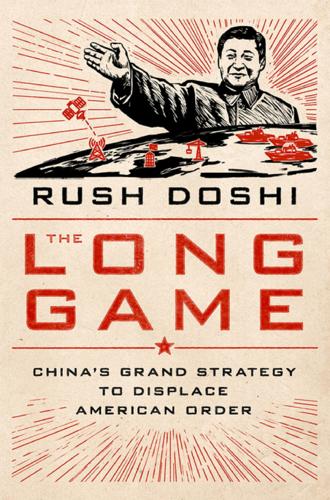
The Long Game: China's Grand Strategy to Displace American Order
by
Rush Doshi
Published 24 Jun 2021
The deference the United States receives from its allies and partners in many cases is also a product of order, as is the relatively uncontroversial acceptance of American overseas bases or of the dollar as reserve currency. This is a fact illiberal states like China, which have written for decades about the liberal bias of the international system and the foundational aspects of American hegemony, cannot afford to forget. China does not simply bemoan the international system’s presumptions of American structural advantages but interrogates them, asks why they are the way they are, and seeks to reshape the system more to its liking by constructing its own order.

Empire of AI: Dreams and Nightmares in Sam Altman's OpenAI
by
Karen Hao
Published 19 May 2025
In March 2023, Zilis’s continued board role finally turned untenable as Musk incorporated a new AI venture, xAI, to be another direct competitor to OpenAI. Third to depart was Will Hurd, a former Republican Texas representative and former CIA officer, who had joined the board in 2021. During the announcement of Hurd’s appointment, Altman had told employees that it was important to have someone that balanced out the liberal bias of Silicon Valley. He then organized a meeting for anyone who had reservations to ask Hurd any questions. Employees didn’t hold back, grilling Hurd about his views on different issues, including Donald Trump. In June 2023, Hurd parted ways with OpenAI to focus full time on his US presidential campaign.
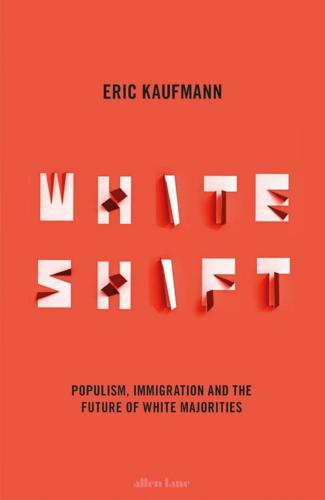
Whiteshift: Populism, Immigration and the Future of White Majorities
by
Eric Kaufmann
Published 24 Oct 2018
Whereas 39 per cent called Latinos racist on the YouGov survey for wanting more Latin American immigration to boost group share, the level in the MTurk sample – where people are asked to justify their responses – was just 25 per cent. So we see a much higher level of consistency when people are asked to answer four sequential questions and explain the pattern of their answers. This is unlikely to be an artefact of the differing survey samples because MTurk’s liberal bias should move all responses in that direction rather than narrowing partisan gaps.65 What is revealing is that with greater consistency came a shift away from seeing the desire for reduction as racism to accepting racial self-interest: when people think about it, fewer are willing to level the racism charge at restrictionists.
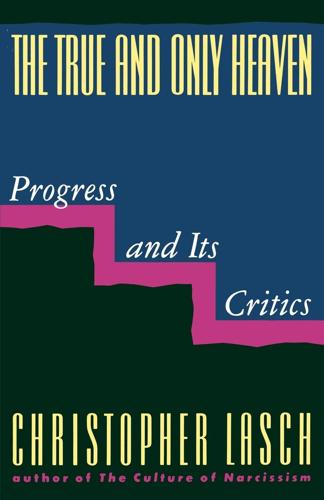
The True and Only Heaven: Progress and Its Critics
by
Christopher Lasch
Published 16 Sep 1991
The right's inability to get beyond clichés about hedonism, permissiveness, and moral relativism ought to invite people on the left to give a more penetrating account of contemporary culture. Careful attention to popular complaints about the media, for example, would suggest that people are troubled by something more elusive than "liberal bias" or sexual license. What people find disturbing about the media, it would seem, is their obsession with the young and affluent, with glamour, celebrity, money, and power; their indifference to working people and the poor, except as objects of satire or "compassion"; the prurient quality of their fascination with violence and sex; their inflated sense of their own -523- importance; their insatiable appetite for scandal; their eagerness to uncover unworthy motives behind every worthy act; the encouragement they give to disrespect and cynicism.